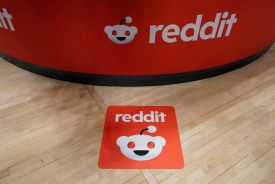Eating Pringles may speed up the removal of toxins in the body, according to a recent study.
Researchers from the University of Cincinnati found that Olestra, a zero-calorie fat substitute found in low-calories snack foods, could reduce the levels of serum polychlorinated biphenyls (PCBs) in people who had been exposed to PCBs.
High levels of PCBs in the body are associated with an increase in hypertension and diabetes.
"Olestra is a fat that passes through the body and remarkably it has revealed a potential health benefit of removing PCBs," researcher Ronald Jandacek said in a statement. "Our early work with animal studies predicted that we would see this effect in people.
For the study, researchers recruited 28 people who had known high levels of PCBs for a yearlong study. Half of the participants consumed 12 Pringles a day made with vegetable oil, and the other half consumed 24 Pringles a day made with olestra. The serving sizes varied to control calorie count.
"The findings showed that the rate of PCB disappearance from the participants that ate olestra was markedly faster during the one-year trial than that before the trial," Jandacek said.
They found that the half who ate the olestra chips had a PCB rate of decrease of 8 percent, an eight-fold increase in the rate of removal prior to the study compared with those who ate the chips with vegetable oil, who had 1 percent increase in the rate of removal.
"Olestra's effect on PCB removal is apparently the result of solubilizing fat-soluble compounds like PCBs in the intestine and the solubilization reduces absorption of these compounds into the body,"Jandacek said.
The findings were recently published in the April edition of the Journal of Nutritional Biochemistry.
Olestra is a nonabsorbable fat product that Procter & Gamble developed in collaboration with the University of CIncinnati and was introduced in snack foods (most notably Pringles) in 1996.
© 2025 University Herald, All rights reserved. Do not reproduce without permission.








